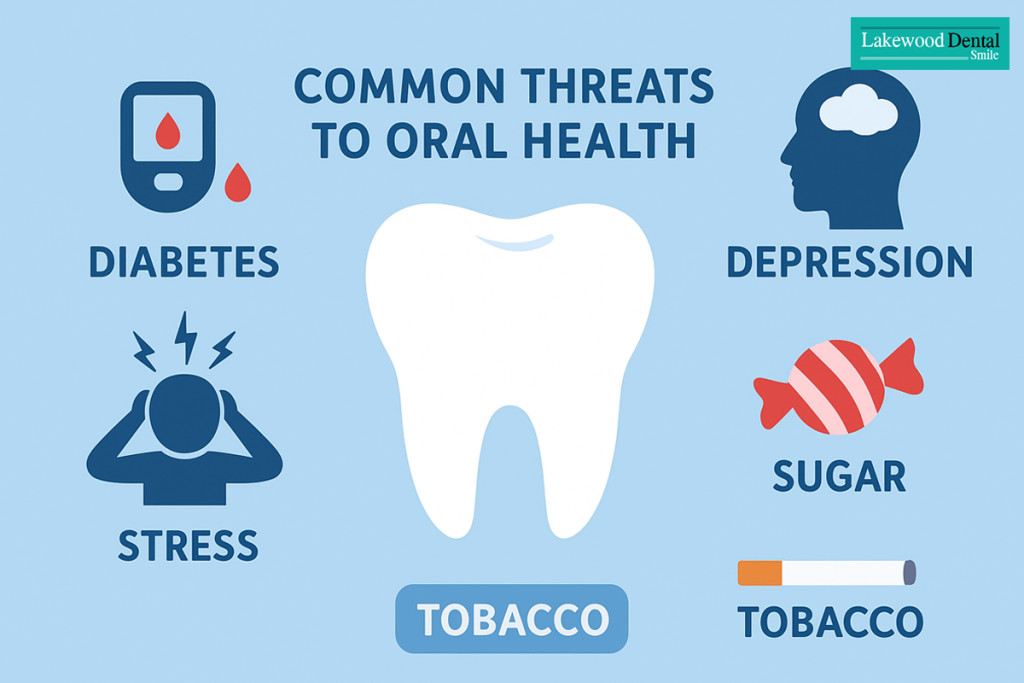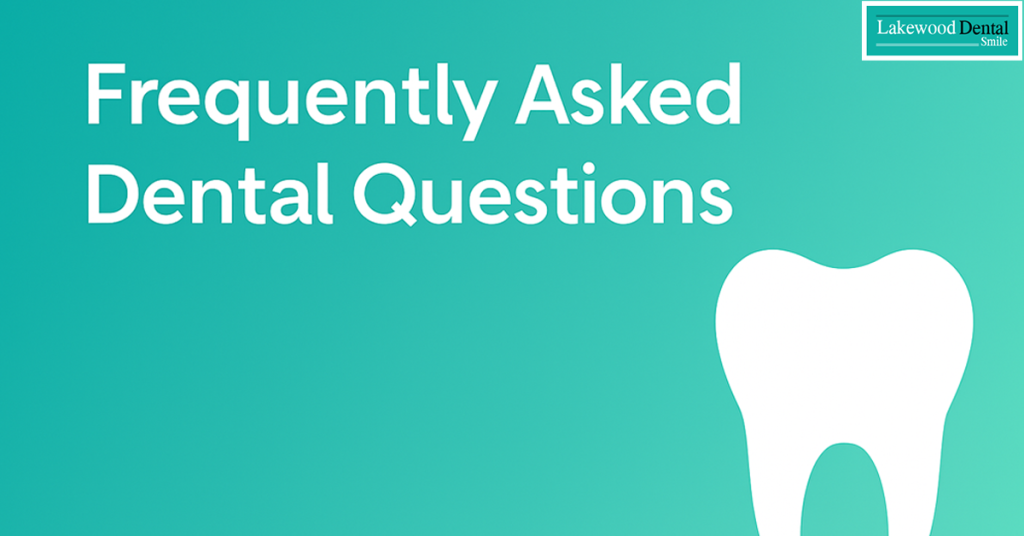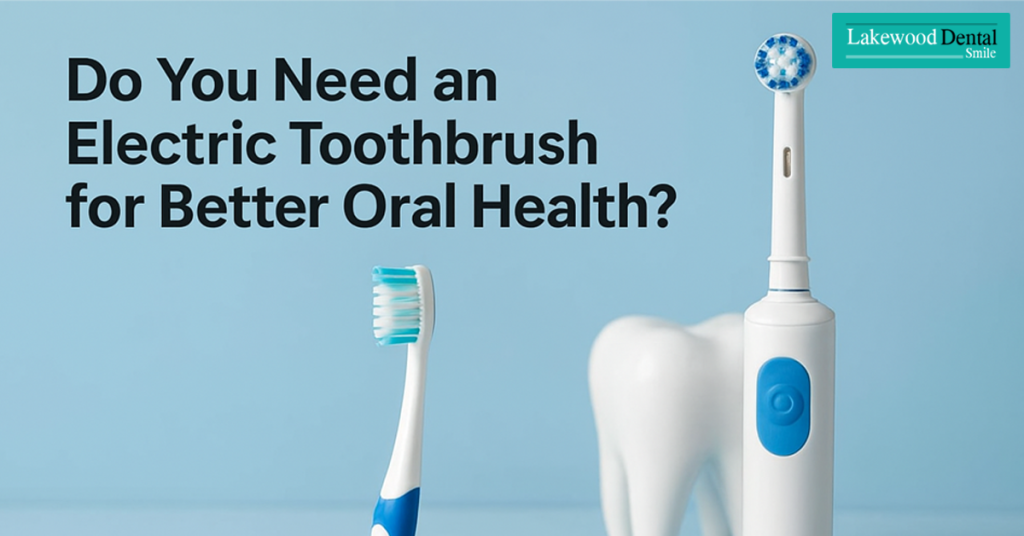
Common threats to oral health can sneak up on you even if you brush and floss daily. While good oral hygiene is essential, lifestyle habits, chronic conditions, and environmental factors can still increase your risk of cavities, gum disease, enamel erosion, and even oral cancer.
Understanding these threats can help you take preventive steps to safeguard your teeth and gums. Let’s look at seven common threats to oral health and what you can do about them:
Diabetes
People with diabetes are more likely to experience gum disease. Poorly controlled blood sugar can lead to inflammation in the mouth, which may progress to periodontitis (a severe gum infection). If you have diabetes, it’s important to pay special attention to your gums. Daily flossing and regular dental check-ups are key to preventing complications.
Depression
Depression affects many aspects of daily life, including oral health. It often reduces the motivation to carry out regular self-care, leading to poor oral hygiene. Dental problems that follow can worsen feelings of sadness and pain, creating a cycle that’s hard to break. Seeking professional help for depression not only benefits your mental health but also supports your oral well-being.
Stress
Stress impacts your body in many ways—and your mouth is no exception. Many people hold tension in their jaw, which can lead to teeth clenching and grinding (bruxism), especially at night. Over time, this can wear down tooth enamel, cause gum recession, and even lead to jaw problems. Managing stress through relaxation techniques can help protect your teeth.
Sugar
It’s no surprise that sugar is harmful to your teeth. Sugar feeds harmful bacteria in the mouth, which produce acids that erode enamel and cause cavities and gum disease. Cutting back on sugary drinks and snacks, and brushing after meals, helps reduce the risk of decay.
Tobacco
Smoking and other tobacco use expose your mouth to nicotine, carcinogens, and toxins. These not only increase your risk of oral cancer and gum disease but also stain teeth, cause bad breath, and lead to costly treatments in the long run. Quitting tobacco is one of the most powerful steps you can take for both your oral and overall health.
Final Takeaway
Protecting your teeth isn’t just about brushing—it’s about understanding the common threats to oral health that go beyond daily hygiene. Diabetes, depression, stress, sugar, tobacco, acidic foods, and poor habits all play a role in damaging your smile. By being proactive and working with your dentist, you can prevent serious problems and maintain lifelong oral health.
📍 At Lakewood Dental Smile in Dearborn, Michigan, we help families recognize and fight these threats with personalized preventive and restorative care.




